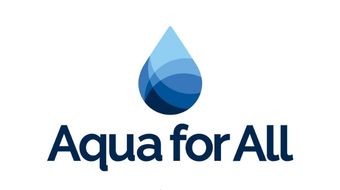In Kampala, Uganda’s capital, over 60% of the population lives in informal housing, while only 10– 15% of the city is connected to formal sewerage. In this context, pit latrines and septic tanks are often emptied haphazardly by independent pit emptiers who may dump waste illegally into the environment.
In response to the challenge of delivering sanitation services to Kampala’s urban poor, the Kampala Capital City Authority (KCCA) launched a geographic information system (GIS)-based mobile application that links pit emptiers with customers. A grant from the Global System for Mobile Communications (GSMA) M4D Utilities Innovation Fund in 2017 was used to upgrade the pilot GIS tracking system, build capacity, and promote pit-emptying businesses. KCCA receives pit-emptying jobs from customers through its call centre, connecting customers with the nearest pit emptiers. Pit emptiers submit critical data through the app to KCCA, including customer details, the amount paid, volume emptied, and the type and location of the sanitation facility. The app and call centre serve as an “ecosystem catalyst” by connecting customers with sanitation services and helping to ensure safe disposal of faecal sludge for a cleaner and healthier city.
Providing pit-emptying services through a GIS-enabled app: KCCA
The platform also enables KCCA to map sanitation activities across the city, which allows them to monitor and regulate service delivery and identify locations in need of interventions. As of January 2020, 171,000 sanitation facilities such as pit latrines were mapped. Insights from its geodatabase and sanitation customer call centre have provided KCCA with actionable information, such as the characteristics of sanitation facilities, how frequently pits are emptied in different districts, and the distances between pits and waste treatment plants. Given that 30% of all pit latrines in Kampala’s informal settlements are still emptied into the environment, KCCA aims to use this information to target and guide investment planning, allocate resources, and regulate service delivery and standards enforcement. KCCA also leads targeted advertisement campaigns to increase demand for pit emptying in districts where health outbreaks are recurrent and relate it to the reduction in disease outbreaks. According to surveyed users, there has been a reduction of 87% in illicit disposal of faecal sludge in the communities.
KCCA has also invested in supporting and empowering the pit emptiers in using digital tools such as a mobile application. The app facilitated over 5,000 pit-emptying jobs, improving overall sanitation in the city, and building the capacity of pit-emptying entrepreneurs. Those using the app reported a 63% increase in income, with 85% of pit emptiers reporting using the app regularly.






